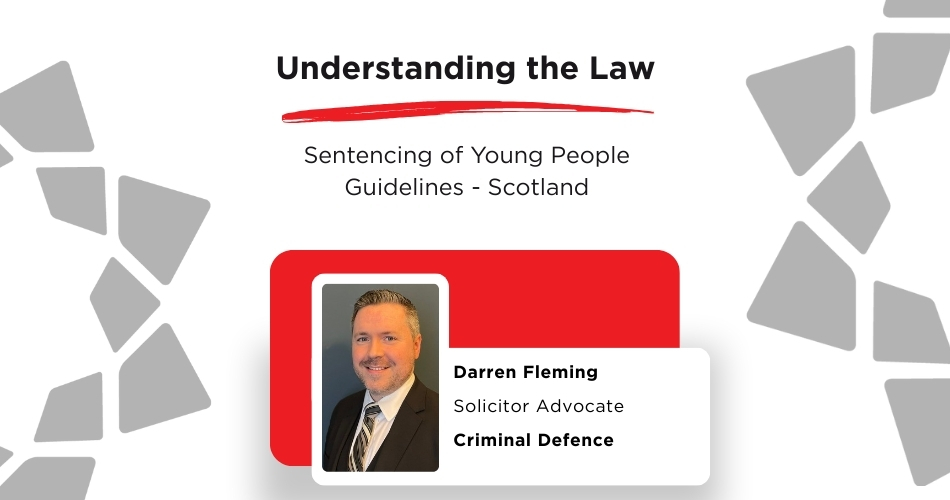
Sentencing of Young People Guidelines – Scotland
By Darren Fleming - Solicitor Advocate Criminal Defence & Road Traffic Law The Sentencing of Young People Guidelines came into...
Scullion News & Resources

Photo by engin akyurt on Unsplash
Author – Anna MacKay
The last 14 months have brought about so many changes for all of us. Countries across the world battled the pandemic by introducing national lockdowns, border closures, and remote working across the board. We now have some statistics to show that these measures also led to an increase in reports of domestic abuse cases around the world. A spike was seen in China, the United States, Brazil, France, Australia and the United Kingdom.
Within the UK there was a rise of 49% in the number of calls to domestic abuse services, an estimate of 380 weekly calls to police, and 16 homicides related to domestic abuse in the first month after strict social distancing was enacted. The number of deaths had trebled compared to 2019 figures – the highest in at least 11 years.
Experts have predicted that the figures are likely to be much higher than what has to date been reported due to underreporting in domestic abuse cases generally and additional hurdles created by the lockdown.
Scotland has been no exception to the international and UK trends on reported cases of domestic abuse. The Crown Office and Procurator Fiscal Service are already prosecuting more individuals under domestic abuse legislation than in previous years, and it is clear that a further increase in prosecutions is just around the corner, as restrictions continue to ease.
The latest Scottish Government report on the issue (Coronavirus (COVID-19): domestic abuse and other forms of violence against women and girls during Phase 3 of Scotland’s route map) gathered data as to the impact of the pandemic on reported domestic abuse in Scotland. Two key changes were noted:
Whilst in general perpetrator behaviours and tactics had not changed significantly throughout the period of lockdown and subsequent Phases, they have however increased in frequency and/or intensity due to the Coronavirus restrictions providing more opportunities for abuse and control to go “unobserved”.
Services supporting men observed a significant increase in perpetrators accessing their services presenting as victims. In some instances, the perpetrators’ reasons for seeking access to the service were related to being denied child contact by their ex-partner.
So we can expect to see more serious allegations prosecuted, and also more men as ‘complainers’ in our courts.
Scots law now provides a comprehensive framework of offences that seek to protect alleged victims of domestic abuse. An accused person can be charged under any one or multiple of these offences:
Our team of experts can assist with any ‘domestic abuse’ allegation, from the early stage of Police Interview all the way through to trial. We have extensive experience of defending individuals at all levels of prosecution, and offer a professional and discreet service.
We would advise you never to speak to the police without seeking legal advice. It is never too early or too trivial to speak to a lawyer. It could make the difference between being prosecuted or not.
Should your case go to court, we are able to guide you through every step of the process, and if need be provide a robust defence at trial.
In particular, we have both experience and interest in prosecutions under Section 1 of the Domestic Abuse (Scotland) Act 2018. We have successfully defended individuals under this provision using the statutory defence offered by Section 6 of the Act, a defence of ‘reasonableness in the circumstances’. This defence is designed to protect people taking reasonable measures against a partner where, for example, they suffer from an addiction or illness.
We also understand that a criminal prosecution can be the tip of the iceberg in the breakdown of a relationship. We work closely with our family law department in assisting individuals with divorce and contact proceedings to ensure that all aspects of the fallout are considered.
Please contact us on 0141 374 2121 or email info@scullionlaw.com to make an appointment with one of our team.

Photo by Sam Moqadam on Unsplash

By Darren Fleming - Solicitor Advocate Criminal Defence & Road Traffic Law The Sentencing of Young People Guidelines came into...

We are proud to announce our shortlisting as finalists in two prestigious categories at the Herald Awards Scotland 2024: Criminal...

Section 1 of the Domestic Abuse (Scotland) Act 2018 Domestic abuse has long been a serious issue in Scotland, affecting...